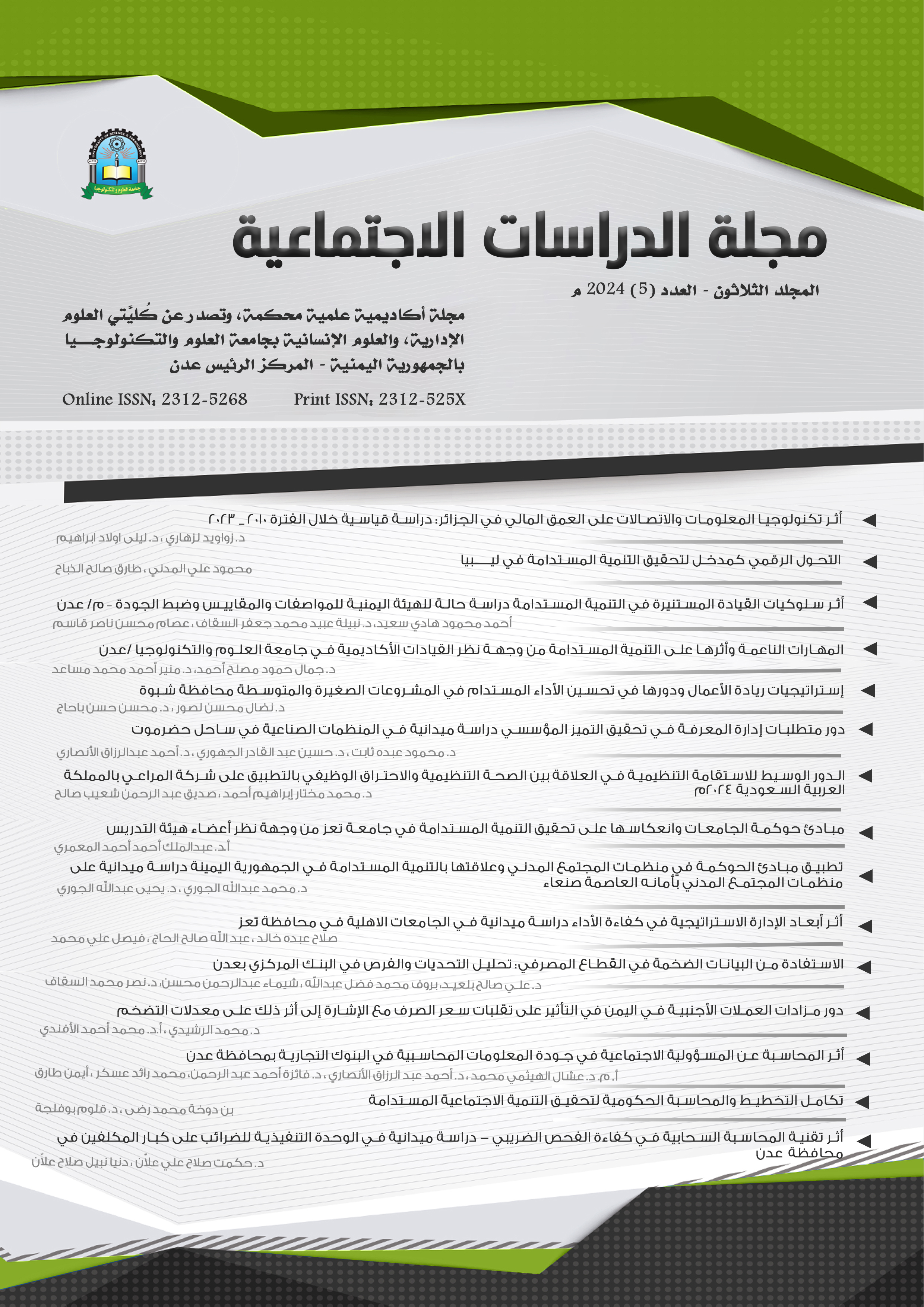Entrepreneurship Strategies and Their Role in Improving Sustainable Performance in Small and Medium Enterprises in Shabwah Governorate
##plugins.themes.bootstrap3.article.main##
Abstract
This study aimed to examine the role of entrepreneurial strategies in enhancing sustainable performance in small and medium enterprises (SMEs) in Shabwah Governorate. A descriptive-analytical approach was adopted. The independent variable dimensions were as follows:( Entrepreneurial culture, Creativity and innovation, Risk-taking), A questionnaire was used to collect data from a sample of (238) individuals from the management of these enterprises, using a stratified random sampling technique (owner, general manager, or their equivalent in these enterprises). A total of (219) questionnaires were analyzed, representing a response rate of (93%). According to the records of the Chamber of Commerce and Industry in the governorate, the study population consisted of (1235) projects. The study found that SMEs entrepreneurial strategies to improve sustainable performance at a moderate level. The highest dimension was creativity and innovation, while the lowest was entrepreneurial culture in terms of the independent variable. The highest dimension was social performance, while the lowest was economic performance in terms of the dependent variable .The results indicated that the highest correlation with sustainable performance dimensions was entrepreneurial culture, followed by risk-taking. The study also found a significant relationship between creativity, innovation, risk-taking, and sustainable performance dimensions, but no significant relationship with entrepreneurial culture
##plugins.themes.bootstrap3.article.details##
creativity and innovation, entrepreneurial culture, risk management, sustainable performance, small and medium enterprises

This work is licensed under a Creative Commons Attribution 4.0 International License.
JSS publishes Open Access articles under the Creative Commons Attribution (CC BY) license. If author(s) submit their article for consideration by JSS, they agree to have the CC BY license applied to their work, which means that it may be reused in any form provided that the author (s) and the journal are properly cited. Under this license, author(s) also preserve the right of reusing the content of their article provided that they cite the JSS.








